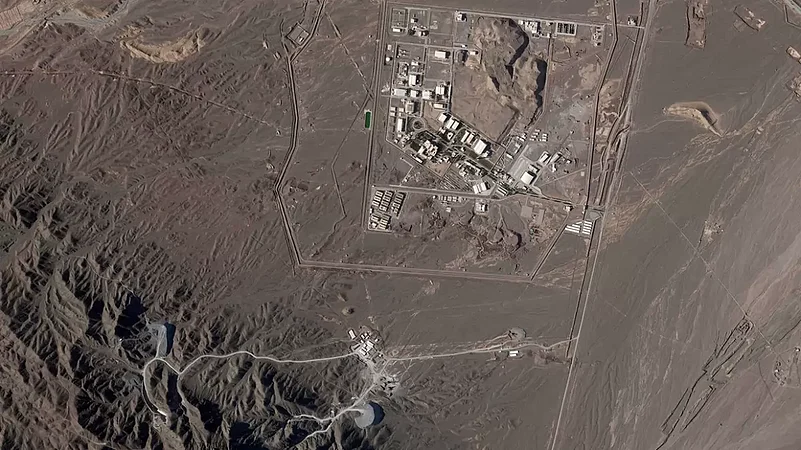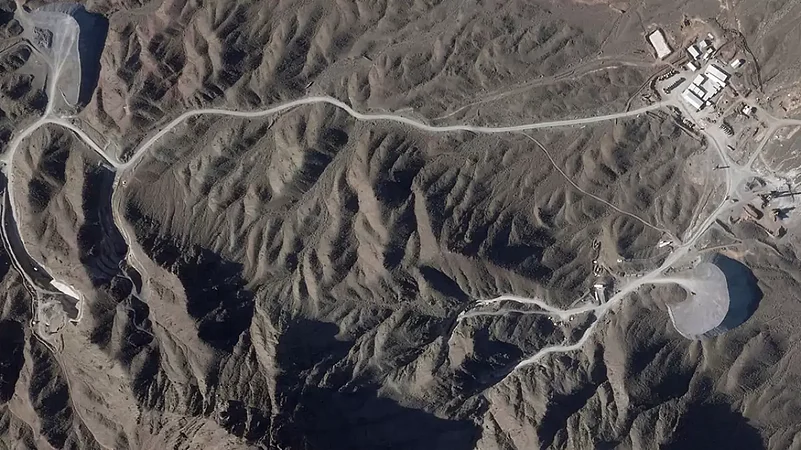A day after a report said that the Iranian nuclear facility was so deep underground that the best of US bombs might not be able to hit it, Israeli National Security Advisor Tzachi Hanegbi said that the site is not immune from an attack.
Iran is understood to be working towards a nuclear weapon which both Israel and the United States are opposed to.
Israel considers a nuclear-armed Iran an existential threat and has said it would "do everything within Israel’s power" to prevent Iran from acquiring a nuclear weapon.
Tzachi Hanegbi also said that he hopes that a situation where an attack would have to be considered should not be reached.
What did Israeli NSA Hanegbi said?
Hanegbi made the comments in response to an Associated Press report that said the new Iranian nuclear facility appears to be as deep as 100 meters (328 feet) below ground, which might be out of the reach of specialised US bombs.
Speaking at a security conference near Tel Aviv, Hanegbi said he was not surprised by the report, noting that Iran has other underground facilities. While he acknowledged the location would complicate any potential military strike on the facility, he said there are still solutions to the challenge.
He said, "What is possible to say about this matter is that there is no place that can't be reached."
Hanegbi declined to say whether Israel had the ability to do this on its own.
"We hope we won't get to a situation where the solution to the story of a nuclear weapon in Iran is a kinetic solution, a solution involving an attack," said Hanegbi, adding that Israel prefers to see the international standoff with Iran resolved through diplomatic means.
Israel considers Iran to be its greatest enemy and Prime Minister Benjamin Netanyahu has repeatedly said he will not allow Iran to develop a nuclear weapon. He has said international diplomacy should be accompanied by a serious military option and hinted that Israel would be prepared to strike Iran on its own if necessary.

Addressing the same conference, Israel's military chief Lt. Gen. Herzi Halevi said Israel is closely monitoring Iran's nuclear program and reiterated that the military is prepared to take action.
He said, "There are possible negative developments on the horizon and that can bring about action. We have capabilities. Others have capabilities, and this is a very significant and important matter."
What did the AP report say about Iranian facility?
Israeli NSA Hanegbi's comments come a day after AP reported that the Iranian nuclear facility might be so deep underground that US bomb could not reach it.
Photos and videos of Iran's new facility from Planet Labs PBC show Iran has been digging tunnels near the Natanz nuclear site, which has come under repeated sabotage attacks over the years. Excavation mounds at the site suggest the facility could be between 80 meters (260 feet) and 100 meters (328 feet) under the ground, according to experts and AP's analysis.
Iran denies it is seeking nuclear weapons, though officials in Tehran now openly discuss their ability to pursue one.
With Iran now producing uranium close to weapons-grade levels after the collapse of its nuclear deal with world powers, the installation complicates the West's efforts to halt Iran from potentially developing an atomic bomb as diplomacy over its nuclear program remains stalled.
The construction comes five years after then-US President Donald Trump unilaterally withdrew America from the nuclear accord. Since then, Iran has stepped up its uranium enrichment far beyond the limits of the accord. Experts believe it is just a short step from reaching the 90% enrichment threshold of weapons-grade uranium.
Uranium enrichment is a key element of producing a nuclear bomb. Israeli experts believe Iran would need additional time, up to two years, to develop the means to deliver and detonate a warhead.
Iran could make nuclear bomb in months: Top US general
Earlier in March, top US military officer, Gen. Mark Milley, said Iran could develop a nuclear weapon within months if it decided to.
In his testimony to US Congress on Thursday, Milley also said that the US military has preparead plans to present to the President in case Iran develops a nuclear weapon.
"From the time of a national decision, Iran could produce enough fissile material for a nuclear weapon in approximately 10-15 days and it would only take several months to produce an actual nuclear weapon. The United States remains committed, as a matter of policy, that Iran will not have a fielded nuclear weapon. The United States military has developed multiple options for our national leadership to consider, if or when Iran decides to develop a nuclear weapon," said Milley, the Chairman of the Joint Chiefs of Staff.
Milley's comments ignited debates within the United States as he said "Iran will not have a fielded nuclear weapon".
Experts pointed that Milley did not use the word "develop" but "fielded" which has a very different meaning. The word "fielded" means "deployment". Experts question if the Biden administration is okay with the development of the bomb but not with its deployment. Experts say the White House should clarify this as, if this is the case, it would be a major policy shift.
(With AP inputs)
















